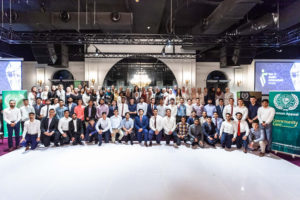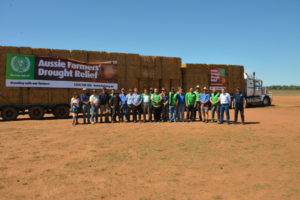Sept 25 2002 – The treatment of a jailed Lebanese-Australian rapist has highlighted a wider debate about ethnicity and crime in this most cosmopolitan of nations, writes David Fickling
It’s hard to extend any sympathy to people like Bilal Skaf. He is currently serving a 55-year jail term for his part in a string of gang-rapes in Sydney’s southern suburbs two years ago.
During the rapes teenage girls were threatened at gunpoint, beaten, insulted, forced to perform oral sex and raped by up to 14 boys at a time. In a particularly inflammatory twist, several of the victims were subjected to a barrage of racist taunts by their assailants, all of whom were from Lebanese backgrounds.
Skaf has never shown any remorse for the crimes or pity for the victims, and smiled as he received the guilty verdicts. Members of his family have fallen back on the old saw that the women he attacked were willing partners in their assault.
So it’s difficult to get too excited about his treatment since he arrived in Sydney’s Gilmour prison last month. But by any standards, he seems to have been singled out.
He has been moved to a maximum security unit after prison officers uncovered plans among fellow-inmates to inject him with HIV-infected blood, and both his parents have been banned from visiting him.
His mother, Baria, was hit with a two-year ban after smuggling out a couple of love letters he had written to his fiance – prison officers say the letters contained sensitive details of the layout of his prison block.
His father, Mustapha, is on a temporary ban, as allegations that he tried to bribe a prison officer into putting a call through to his son outside of official hours are investigated.
In what many regard as a step too far, the Australian media were even leaked photographs which purported to show Baria Skaf concealing the incriminating letters in her sock, prompting complaints from privacy and civil liberties advocates.
In short, Bilal Skaf has become a criminal celebrity. The horrific nature of his crimes is explanation enough for the public reaction; the clincher is the stench of racism in his acts, something acknowledged privately even by his lawyers.
“They are boys using ethnicity as an excuse for behaving badly,” one told the Sydney Morning Herald after the trial.
But it’s not just the rapists who have been using ethnicity as an excuse of late: rightwing commentators have jumped at the chance to find a racial explanation for the crimes. Under their analysis, the attacks do not simply give us a window onto the minds of 19 teenage boys in south Sydney, but a wake-up call to the wickedness supposedly inherent in Australia’s Muslim communities.
The rightwing radio presenter, Alan Jones, revealingly describing the attacks by Australian-born teenagers as “Muslim rapes of Australian women”, suggested that they were “the first signs of an Islamic hatred towards the community that welcomed them”.
Janet Albrechtsen, a columnist for The Australian newspaper, went one step further by twisting the results of two European studies to suggest that there was a proven link between gang-rape and Muslim culture. The authors of the studies subsequently rubbished her imputations.
Such reactions are depressing but far from surprising. The long process of trial and sentencing took place in the deflated atmosphere of post-Olympics Australia, when the biggest issues were the perceived national threat of a handful of mostly Afghan and Iraqi refugees, and the remote possibility that al-Qaida might one day turn its attentions down under.
But those who care equally about misogyny and racism are left in an invidious position by the gang-rapes of 2000: attack the racists, and you risk defending the rapists; attack the racists, and you risk siding with the racists.
So the release of a report today into perceptions of crime in Sydney’s ethnic communities – and the announcement last week of a study into crime and ethnicity by New South Wales police – provides some welcome light in the murk.
Shock horror, it seems that perceptions and experience of crime among Lebanese-, Vietnamese-, Chinese- and Turkish-Australians are much the same as those in the population as a whole. They are the victims of the same sort of crimes, worry more about crime as they get older, and feel unsafe in the same Sydney suburbs commonly denounced as hotbeds of lawless Muslim youth.
“In a cosmopolitan city like Sydney, crime will be cosmopolitan,” said the report’s author, Professor Jock Collins of the University of Technology, Sydney.
“The danger with cases like the pack-rapes is that when people condemn the crimes the brush slips, and they tar the whole ethnic community.”
The furore also distracts from Sydney’s good record as one of the most multicultural cities in the world. More than half of the population are first or second-generation immigrants, and the seven victims of the gang-rape attacks included two girls from an Italian background, one from a Greek family and another with Aboriginal parentage.
Nonetheless, few expect the current hue and cry to die down in a hurry. There’s a state election planned for next autumn, and all the predictions are that it will be a law-and-order election.
The New South Wales state premier, Bob Carr, may be a staunch Labour politician, but his skill in “triangulation” and the “third way” rivals even that of Clinton and Blair.
It would be an unwise gambler who placed a bet on his refusal to play the race card if his opponents lay it on the table.
Email
david.fickling@guardian.co.uk






